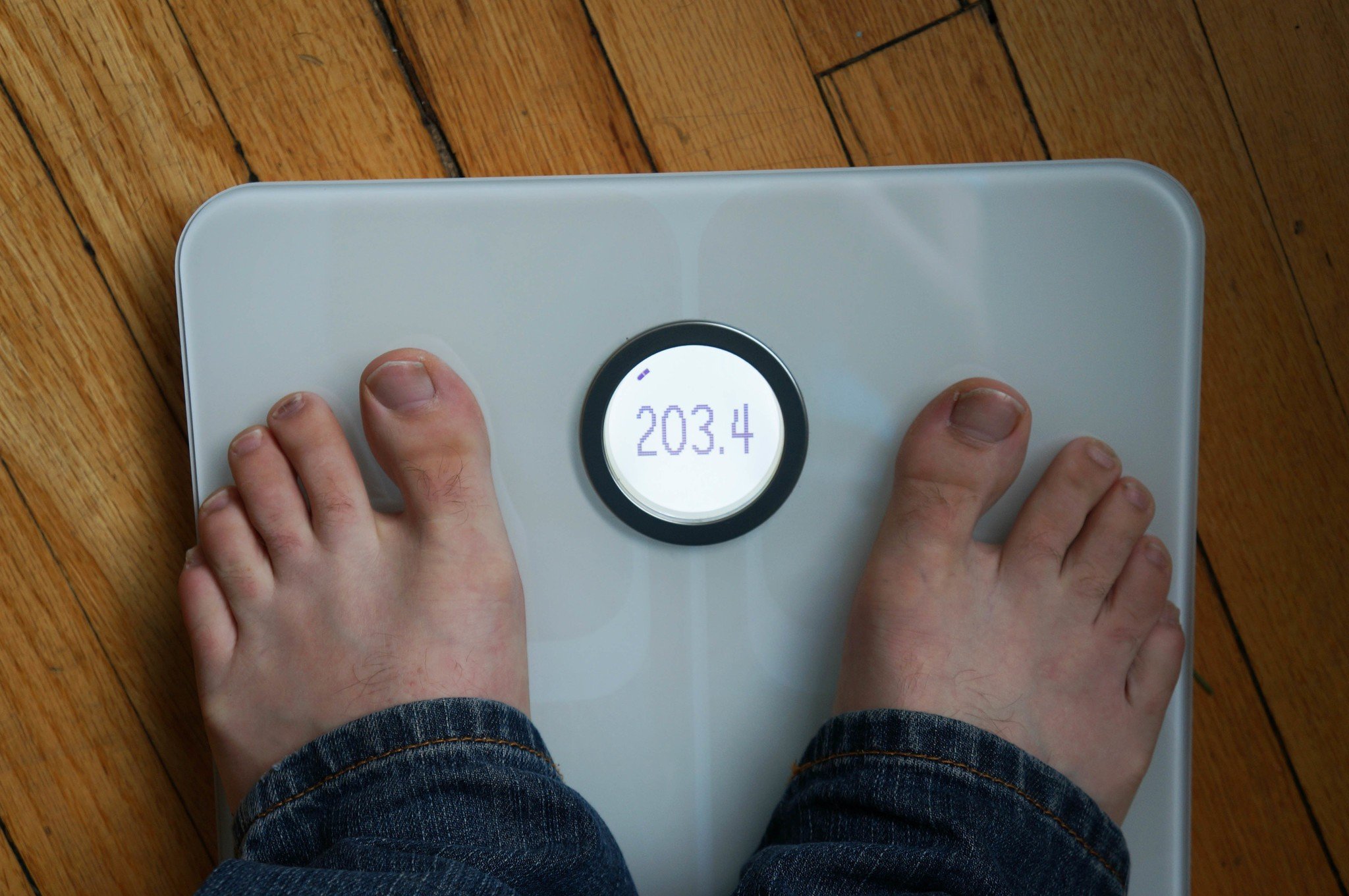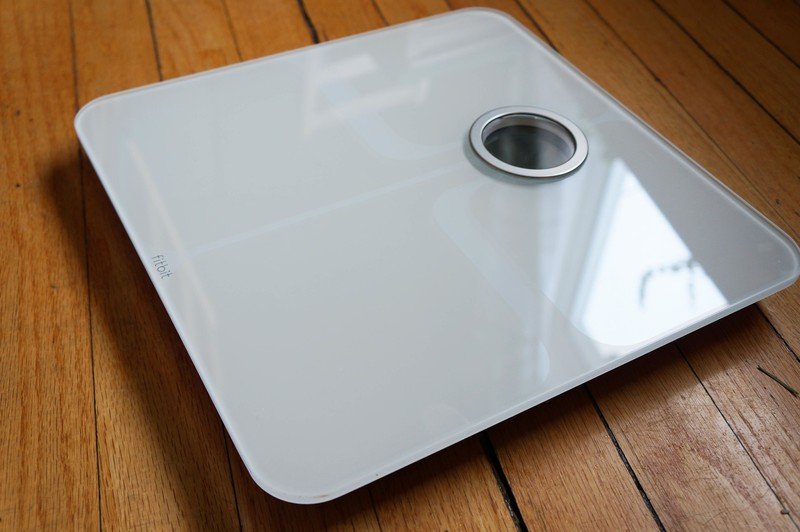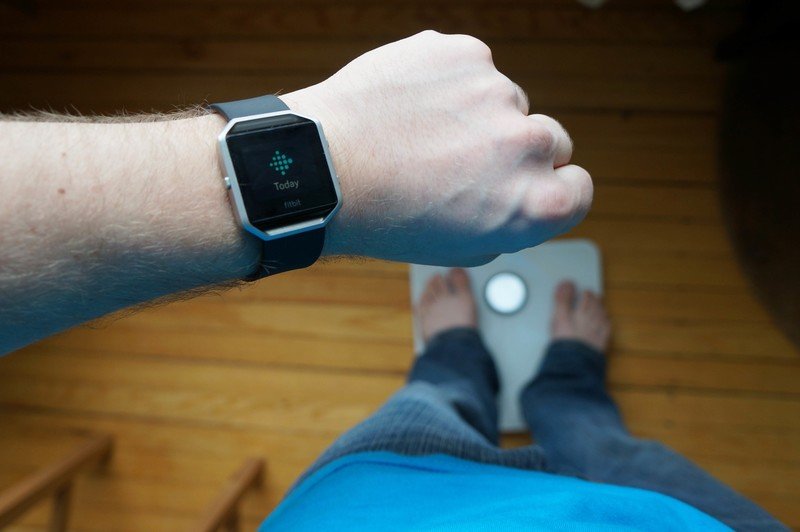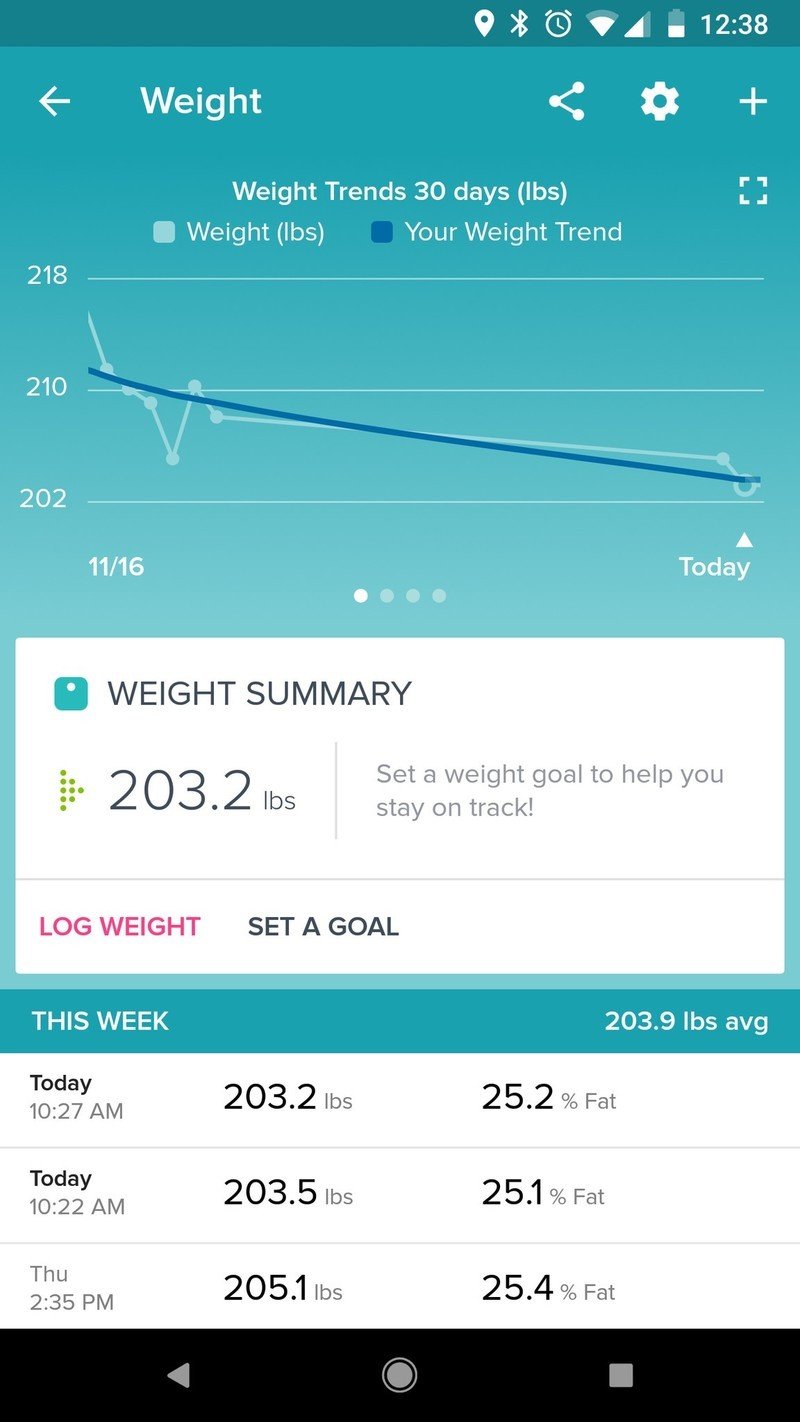Fitbit Aria 2 review: Keeping it in the family

As the name implies, the Fitbit Aria 2 is the second-generation of smart scales from Fitbit, the brand that's become synonymous with fitness-focused technology. It's sleek and easy to use with a really bright LED screen, but is it worth the rather steep $130 price tag?
That question largely depends on your opinion and usage of other Fitbit products. Lets dive in.
Design and use

If you've seen the original Fitbit Aria, you're going to be asking what's new or different with the Aria 2. Design-wise, the quick answer is not much on the surface. The Aria 2 offers a near-identical physical design to its predecessor, with the LED display being the only noticeably improved part of the hardware. It runs on just 3 AA batteries, which are included in the box.
The surface is made of conductive glass to allow the Aria 2 to detect your body's bioelectrical signals. All you need to do is step onto the scale with bare feet and it will start to measure your weight (obviously), as well as your body fat percentage and BMI. Your weight and overall body fat percentage is displayed right on the scale's display, and then the info is automatically transferred to your Fitbit account, so you can dive in a bit deeper in the app.
The fact that you don't need your phone or Fitbit to be on or near you when you step on the scale is pretty incredible. The Fitbit Aria 2 can handle up to eight unique profiles at one time, so every member of your family will be able to track their personal statistics in a discreet and private way. You're also able to select a unique profile image that will appear on the Fitbit scale after it's taken its measurements as confirmation that it has connected to the right profile.
Syncs with your other Fitbit data

You could, in theory, use the Fitbit Aria 2 as a standalone device without pairing it with a Fitbit tracker, but since the Aria's data is pigeonholed into a small section of the Fitbit home screen, it's way more convenient to use in combination with a Fitbit tracker.

For the purposes of this review, Fitbit sent me a Blaze smartwatch to wear as I tested out the Aria 2, and I must say that the full Fitbit experience with the tracker and the scale was pretty enjoyable. I've tried using a Fitbit before, but couldn't stay committed to wearing one as reliably as I would have liked. I've found, however, that just by adding a second Fitbit device to my account gave me more data to peruse every time I load up the app. Obviously, that's what Fitbit is hoping — the more gadgets you buy, the more engaged you are within the Fitbit community.
Be an expert in 5 minutes
Get the latest news from Android Central, your trusted companion in the world of Android
For that reason, I'd recommend a Fitbit Aria 2 to anyone who's already well-bought into the Fitbit ecosystem, as it will seamlessly integrate into the app that you're already comfortable using. Since it's always connected to Wi-Fi, you just use it as you would any other bathroom scale and then you get that data sent to your phone. However, if you already own and enjoy using the first generation Fitbit Aria scale, it would be hard to justify upgrading to the Aria 2. But if you're like me and had issues using the original Aria, you'll be happy to know that the experience feels a heck of a lot smoother with the Aria 2.
Should you get a Fitbit Aria 2?
The Fitbit Aria 2 is a smart scale that I would exclusively recommend to people who have already bought into the Fitbit community. If that's how you track your health metrics, the Aria 2 will seamlessly work with your existing Fitbit accessories and you'll appreciate the extra data in your Fitbit dashboard.
Within the broader smart scale category, the Aria 2 falls flat in a number of areas including the speed at which it takes measurements and the price. As I pointed out in my head-to-head comparison article, the Aria 2 can't match competitors such as the Eufy BodySense smart scale in terms of value and enhanced functionality.
Priced at $129.99, the Aria 2 is aimed at a specific demographic who are okay with paying a bit more for the Fitbit brand, but there are better deals to be had if you're not so brand-loyal.
Marc Lagace was an Apps and Games Editor at Android Central between 2016 and 2020. You can reach out to him on Twitter [@spacelagace.

